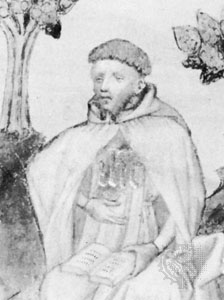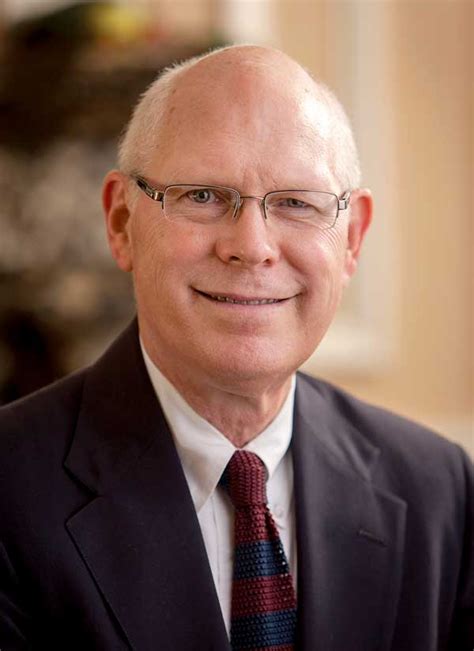A Quote by Gregory David Roberts
Suffering is how we test our love especially our love for God.
Related Quotes
Our willingness to repent shows our gratitude for God's gift and for the Savior's love and sacrifice on our behalf. Commandments and priesthood covenants provide a test of faith, obedience, and love for God and Jesus Christ, but even more importantly, they offer an opportunity to experience love from God and to receive a full measure of joy both in this life and in the life to come.
Man depends on God for all things: God depends on man for one. Without man's love God does not exist as God, only as creator, and love is the one thing no one, not even God himself, can command. It is a free gift or it is nothing. And it is most itself, most free, when it is offered in spite of suffering, of injustice, and of death . . . The justification of the injustice of the universe is not our blind acceptance of God's inexplicable will, nor our trust in God's love, his dark and incomprehensible love, for us, but our human love, notwithstanding anything, for him.
Our role as gardeners is to choose, plant and tend the best seeds within the garden of our consciousness. Learning to look deeply at our consciousness is our greatest gift and our greatest need, for there lie the seeds of suffering and of love, the very roots of our being, of who we are. Mindfulness...is the guide and the practice by which we learn how to use the seeds of suffering to nourish the seeds of love.
At some point, we have each said through our tears, “I’m suffering for a love that’s not worth it.” We suffer because we feel we are giving more than we receive. We suffer because our love is going unrecognized. We suffer because we are unable to impose our own rules. But ultimately there is no good reason for our suffering, for in every love lies the seed of our growth.
The commandment of God is, that we love Our Lord in all our heart, in all our soul, in all our thought. In all our heart; that is, in all our understanding without erring. In all our soul; that is, in all our will without gainsaying. In all our their ought; that is, that we think on Him without forgetting. In this manner is very love and true, that is work of man's will. For love is a willful stirring of our thoughts unto God, so that it receive nothing that is against the love of Jesus Christ, and therewith that it be lasting in sweetness of devotion; and that is the perfection of this life.
God’s love sets us free from the need to seek approval. Knowing that we are loved by God, accepted by God, approved by God, and that we are new creations in Christ empowers us to reject self-rejection and embrace a healthy self-love. Being secure in God’s love for us, our love for Him, and our love for ourselves, prepares us to fulfill the second greatest commandment: To love our neighbor as ourselves.
Loving a holy God is beyond our moral power. The only kind of God we can love by our sinful nature is an unholy god, an idol made by our own hands. Unless we are born of the Spirit of God, unless God sheds His holy love in our hearts, unless He stoops in His grace to change our hearts, we will not love Him... To love a holy God requires grace, grace strong enough to pierce our hardened hearts and awaken our moribund souls.
Suffering invites us to place our hurts in larger hands. In Christ we see God suffering – for us. And calling us to share in God’s suffering love for a hurting world. The small and even overpowering pains of our lives are intimately connected with the greater pains of Christ. Our daily sorrows are anchored in a greater sorrow and therefore a larger hope.
Trusting God's grace means trusting God's love for us rather than our love for God. [...] Therefore our prayers should consist mainly of rousing our awareness of God's love for us rather than trying to rouse God's awareness of our love for him, like the priests of Baal on Mount Carmel (1 Kings 18:26-29).
That which should distinguish the suffering of believers from unbelievers is the confidence that our suffering is under the control of an all-powerful and all-loving God. Our suffering has meaning and purpose in God's eternal plan, and He brings or allows to come into our lives only that which is for His glory and our good.
If we don't love ourselves, we would not love others. When someone tell you to love others first, and to love others more than ourselves; it is impossible. If you can't love yourselves, you can't love anybody else. Therefore we must gather up our great power so that we know in what ways we are good, what special abilities we have, what wisdom, what kind of talent we have, and how big our love is. When we can recognize our virtues, we can learn how to love others.
Why pray? Evidently, God likes to be asked. God certainly does not need our wisdom or our knowledge, nor even the information contained in our prayers ("your Father knows what you need before you ask him"). But by inviting us into the partnership of creation, God also invites us into relationship. God is love, said the apostle John. God does not merely have love or feel love. God is love and cannot not love. As such, God yearns for relationship with the creatures made in his image.



































